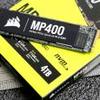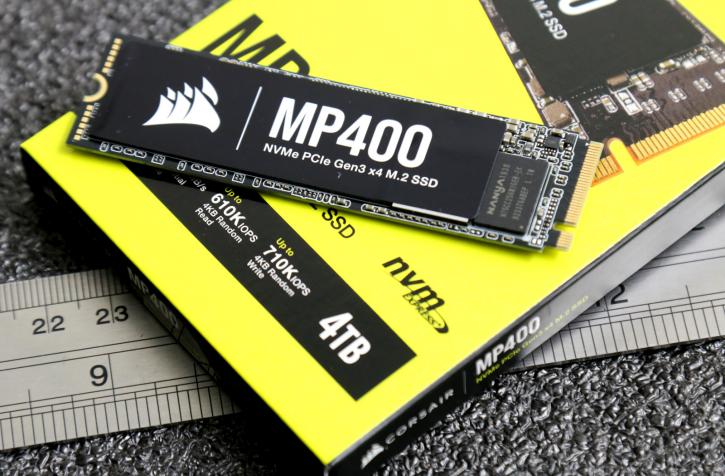Final Words & Conclusion
Final Words
Well, snap, I honestly had no clue how good this SSD series really is. My immediate reaction was much like yours, QLC ... eeuuwh. The reality is that QLC is not liked for its endurance. However, with substantial storage volumes, that's far less of an issue as there are more NAND cells to be written. 800 TBW folks. If you would write a massive 50GB per day all days of the year, then you are looking at almost 44 years of lifespan (for the 4 TB model). That's 22 years for the 2TB model and 11 years for the 1 TB model. That last one is a bit icky, but again my example is 50GB written each day and all days of the year, which is far more than your average workload reality in writing. Corsair is feeling really confident about these values and offers a 5-year warranty to go along with it.
Next to that, this 4TB version is crammed full with chips, so the controller can utilize all 8-channels, combine that with the DRAM caches and a bit of pSSLC buffering, and you won't even reach anything close to a TLC/QLC write buffer either. This little doggy reads and writes full speed all the time. The overall throughput of the NVMe SSD is splendid; it will not hit that TLC/QLC write hole and thus overall is a strong contender offering all the perf you need really. NVMe based M.2. have been growing and advancing in performance really fast with NAND; combine it with a proper controller, and you can get proper performance; this SSD averages out incredibly well. The Vertically stacked QLC written NAND combined with the Phison 5012-E12 controller and suitable workloads reveals close to 2 GB/s to 3 GB/sec in writes.
Concluding
Corsair might have something special here; the MP400 is ticking all the right boxes. Your QLC scare vanishes the second you opt for bigger volume sizes. I'm not sure if I would want that 1 TB version, but I would be very comfortable with 400TBW for the 2 TB version, and the 4TB version with 800 TBW is, of course, luxurious as these are values we have only seen in Samsungs PRO series NVME storage units. The performance is breathtaking as well; it's premium PCIe Gen 3.0 performance. Typically you'd hit a QLC write hole, however with 4TB and these eight NAND chips, and you're fully utilizing eight channels on the controller. That paired with a bit of a pSLC and DRAM buffer ultimately makes any write hole vanish. And we tested that up-to 110 GB continuously written and full hardcore speeds. Summed up, the MP400 really managed to make me think differently about QLC NAND. When volume goes up, you have more NAND cells available, which prolongs your endurance massively. When one can eliminate the QLC write hole, then there's little left to be worried about. Corsair back this up with a 5-year warranty on this series, 5-years or the TBW value reached, whichever one comes first. This series needs better prices though, at close to 600 EUR for 4TB, people will still purchase an HDD. I think once we reach 10 cents per GB, say 400 EUR for an SSD like this, that's where the industry will hit a sweet spot. But I am impressed, and I myself am a little shocked that I am impressed with a QLC based SSD rethinking all this. But yeah, that's Corsair for ya, always thinking outside the box. Noice!
Recommended Downloads



